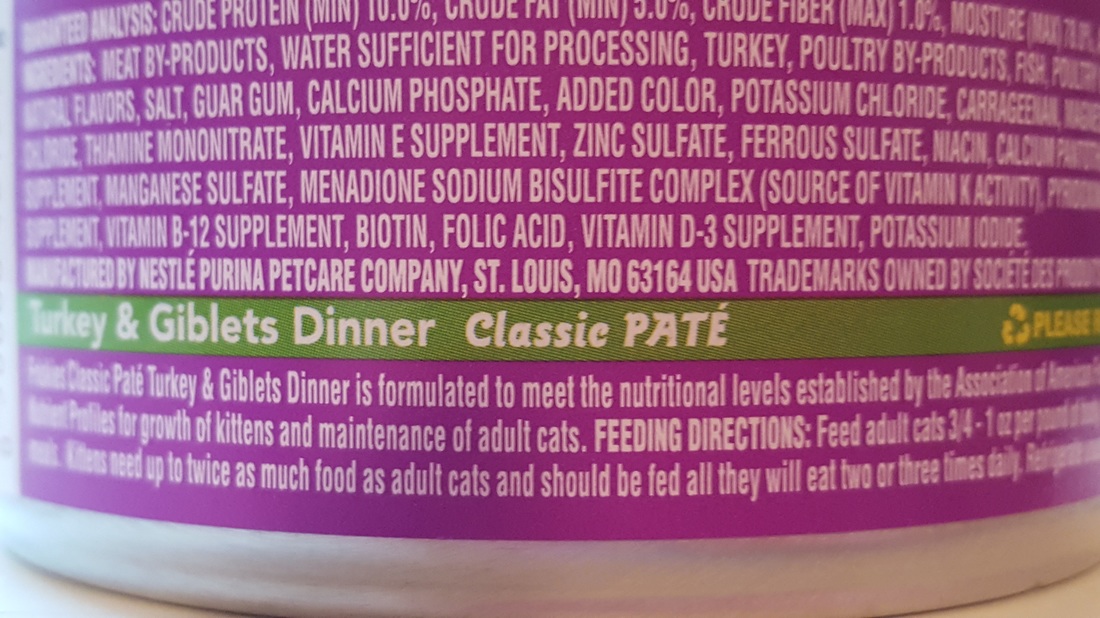|
Last week PetFoodIndustry.com published a blog post, "Simple, clean pet food labels: altering the discussion." The very premise of the article is quite ironic: consumer perception is the problem, not the pet foods. It's not that consumers are becoming better educated as to what provides the best promise of long term health to their animal companions. No, on the contrary, the "problem" is the failure of the pet food industry to properly educate the consumer about the existing ingredients in pet foods. After all, pet food is all about the science of nutrition. And, you know, "science is hard." The author asks "So, what is driving this clean label trend?" and answers: "Like many things, it is consumer demand, driven by perception. In this case, it is backed by nutritionists who agree that eating a diet made up of whole, unprocessed foods such as fruits and vegetables is better for our health. So, consumers will be compelled to read the labels of processed foods, looking for something that is as close to the original state as possible, but with the convenience of a packaged food." Consumer demand. Driven by perception. Backed by nutritionists who agree that eating a diet made up of whole, unprocessed foods is better for our health. Well, consider substituting "education" for "perception" and "Informed by" for "backed by" and see what happens. The concept then reads "Like many things, it is consumer demand, driven by education. In this case, it is informed by nutritionists who agree that eating a diet made of of whole, unprocessed foods ... is better for our health." Is this a bad thing, pet parents wanting to provide their pets healthy, whole foods? Well, if you are Mars, Nestlé, or Del Monte (with what has been renamed the Big Heart Pet Brands) - the largest pet food companies in the world - the knowledge that a solely processed food diet isn't healthy for us or our pets is a bad thing. As they are all also among the largest food and beverage companies in the world, of course they want to counter the notion that homemade and fresh foods are the best foods for us - and our pets. But if it is science they want, there is a growing body of it. Just a few weeks ago, a team of Australians from the Charles Perkins Centre and School of Life and Environmental Sciences at The University of Sydney published a report, Nutrition Ecology and Human Health. The message of the report is straightforward: nutrition science is broken. In a nutshell, while focusing on micronutrients had its place in our understanding of the importance of diet in combating disease, that nutritional model that breaks down nutrition into its components is fundamentally incompatible with the "new suite of nutrition-related diseases." "Food science" isn't failing just human health. There is - sadly - plenty of evidence the same holds true for our pets. As mentioned in our article, Cat Food vs. Cat Health, it is a relatively recent situation that approximately 60% of pet cats in the U.S. live indoor-only. This means that our little predators are not out hunting field mice, voles, rats, or rabbits. They have become completely dependent on us for their nutritional needs. What this also means is that health problems associated with the typical commercial diet are becoming ever more apparent, especially as access to veterinary care and safety from cars and predators contributes to their longer lives. Our cats are overweight, blocking from crystals in their urine, suffering dental disease, and GI disorders are rising at alarming rates, with the incidence of inflammatory bowel disease and pancreatitis now making the "Top Ten" lists of VPI Pet Insurance. Our cats are dying primarily of kidney disease and cancer. Surely food alone does not account for all of these problems. But at Food Fur Life we ask, how healthy would we be if all we ate was dry cereal and/or canned stew – all made with ingredients that weren’t fit for our consumption? No, Pet Food Industry, the problem is not lack of consumer education as to the "safety" of the ingredients in the diets you provide. Your problem is consumers are learning their carnivorous pets need whole, fresh, quality, species-appropriate foods for their best health, too. This is why we created Food Fur Life - to make healthy homemade food accessible to everyone. To make it easy for the busiest of pet parents to provide their pets a fresh, truly human-grade meat-based diet based on the prey model. Blending the best of mother nature and science, whether pet parents are time constrained, and feel they don't have the time to make their own pet food all from scratch, or whether there is concern about "doing it right," we have the solution. And it really is EZ, with EZcomplete.
0 Comments
Your comment will be posted after it is approved.
Leave a Reply. |
Archives
August 2021
Categories
All

|



 RSS Feed
RSS Feed